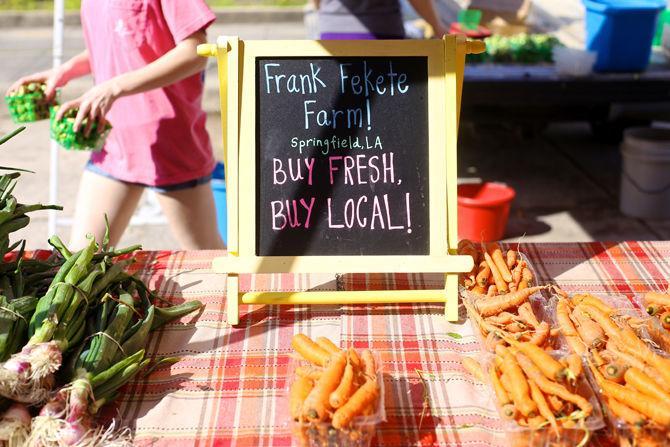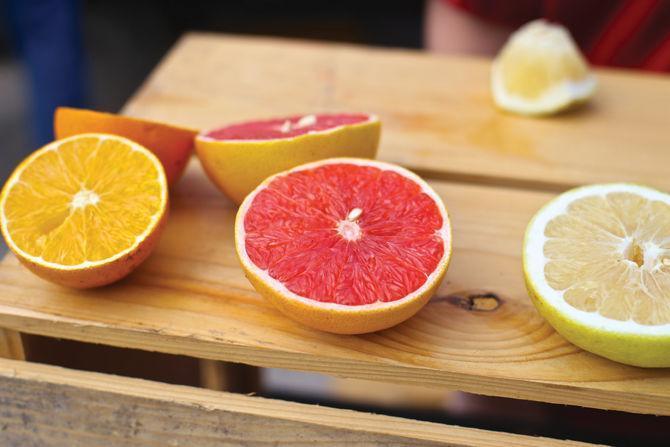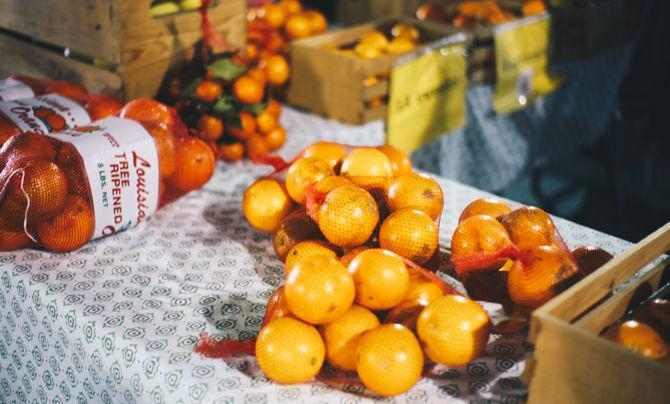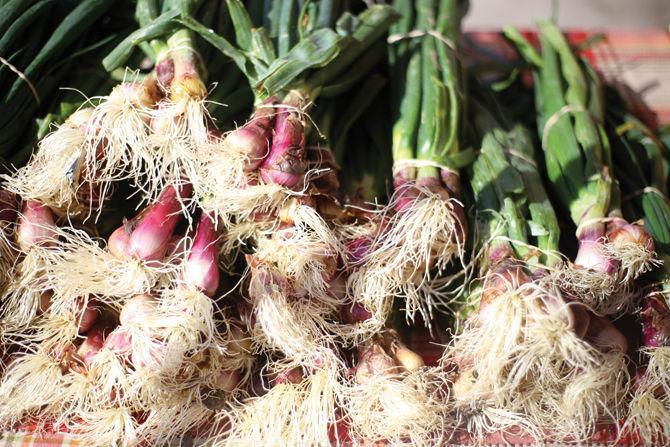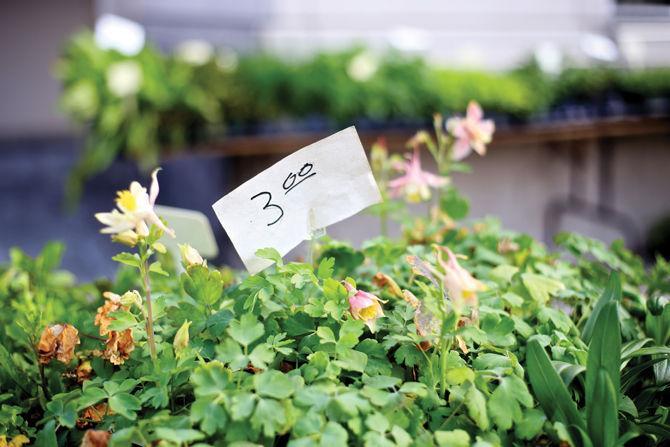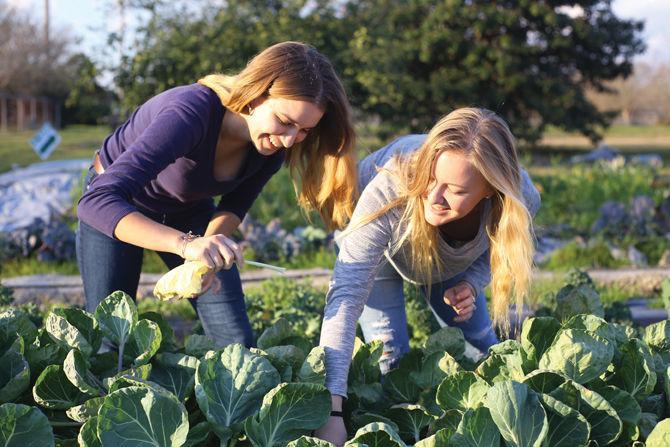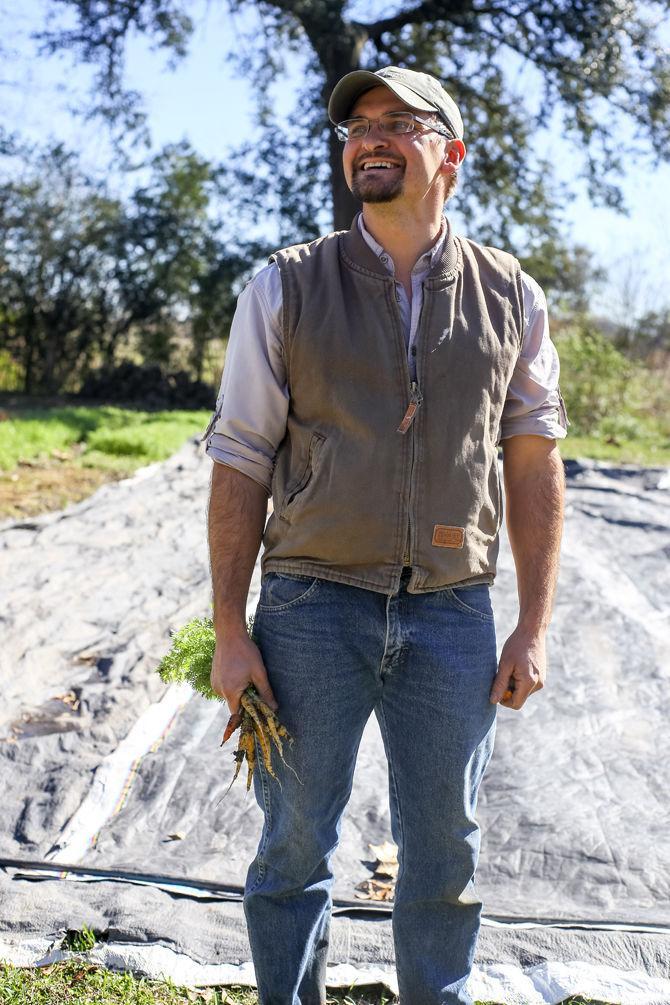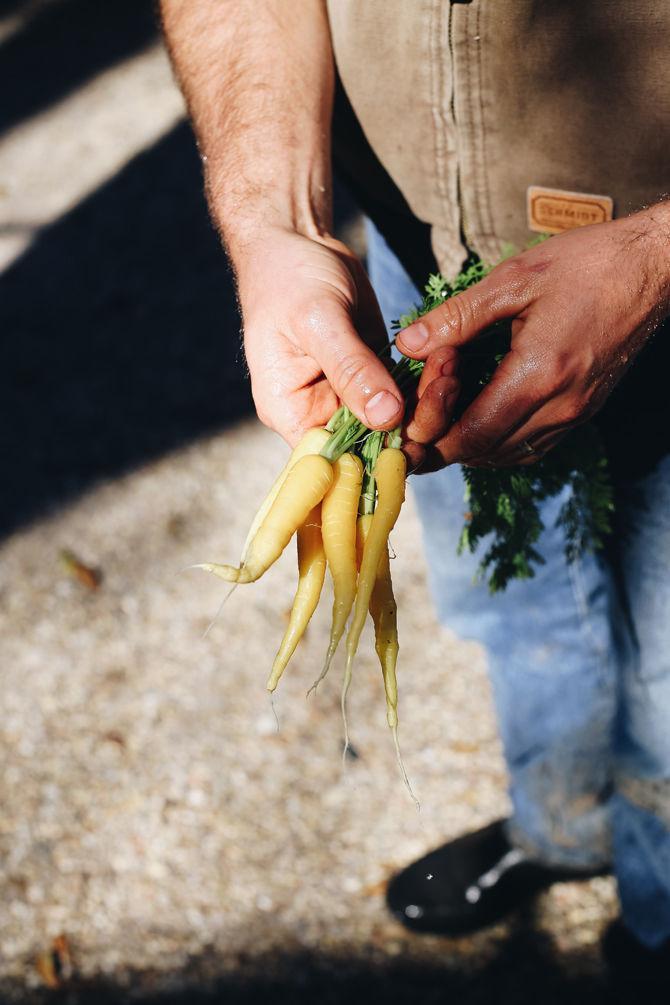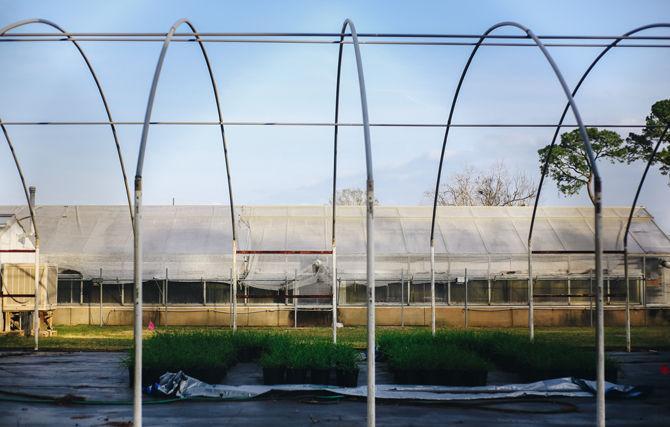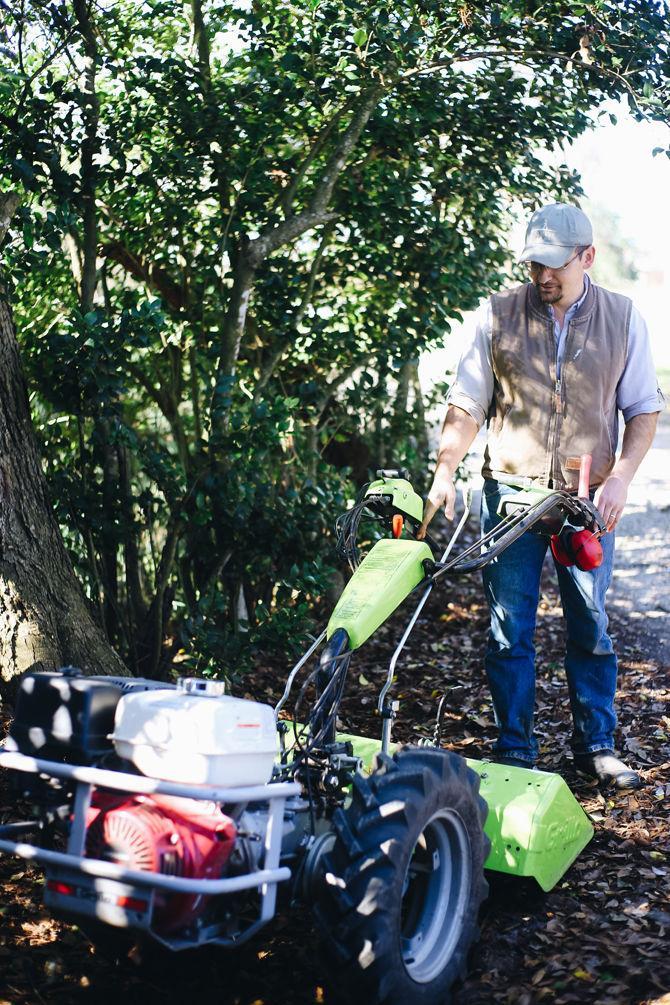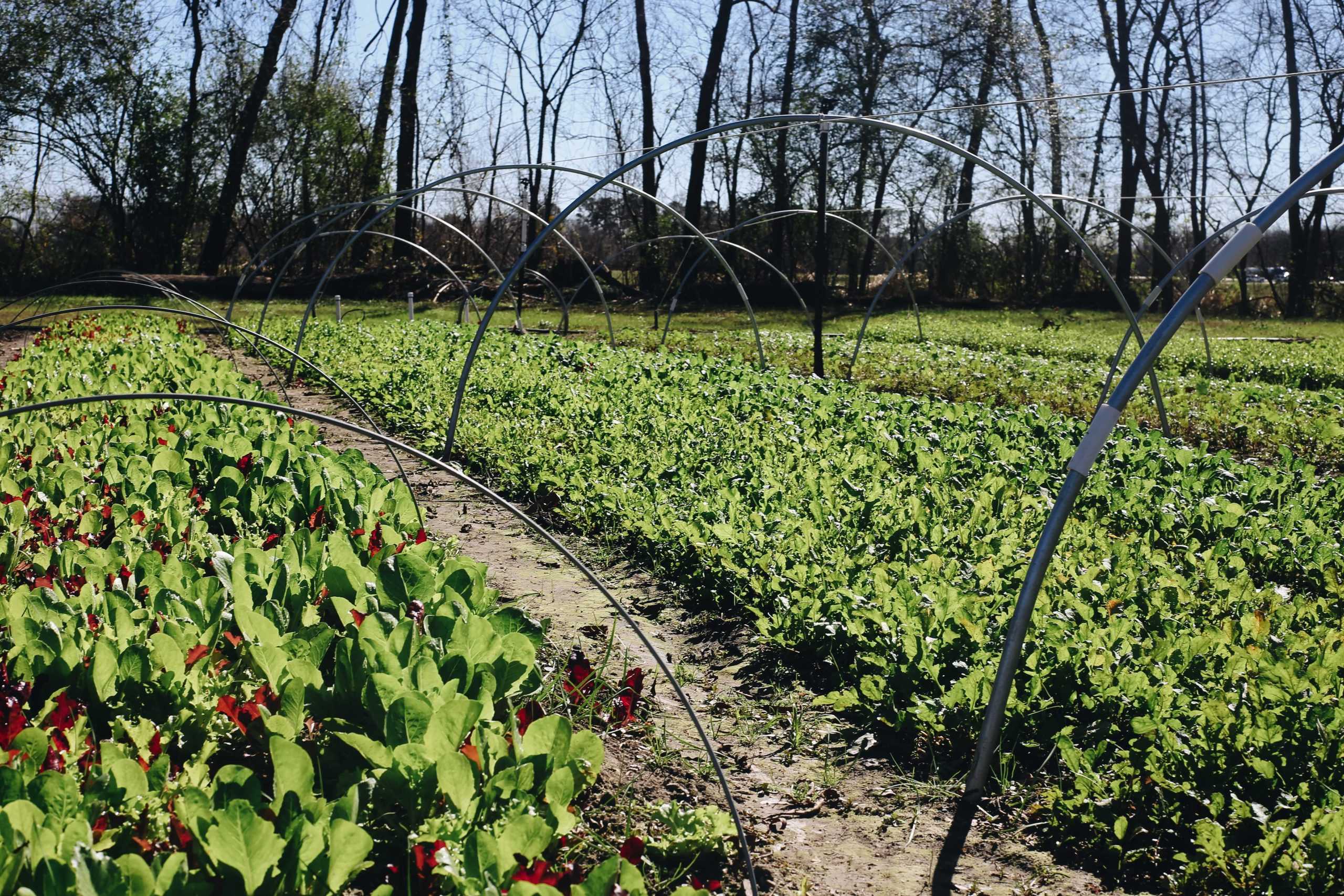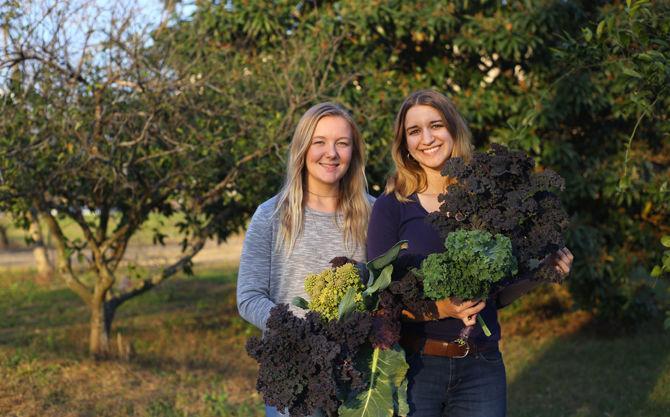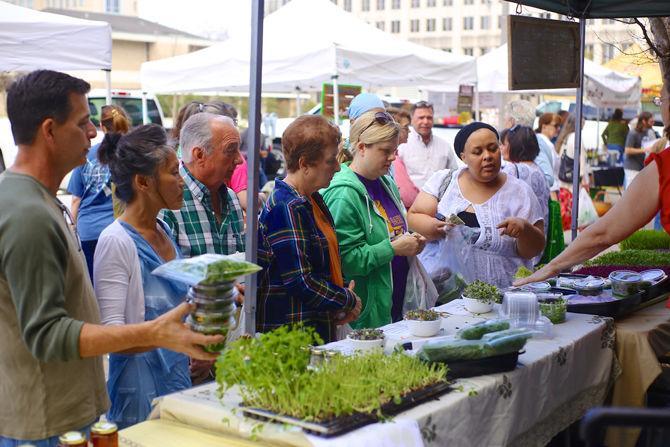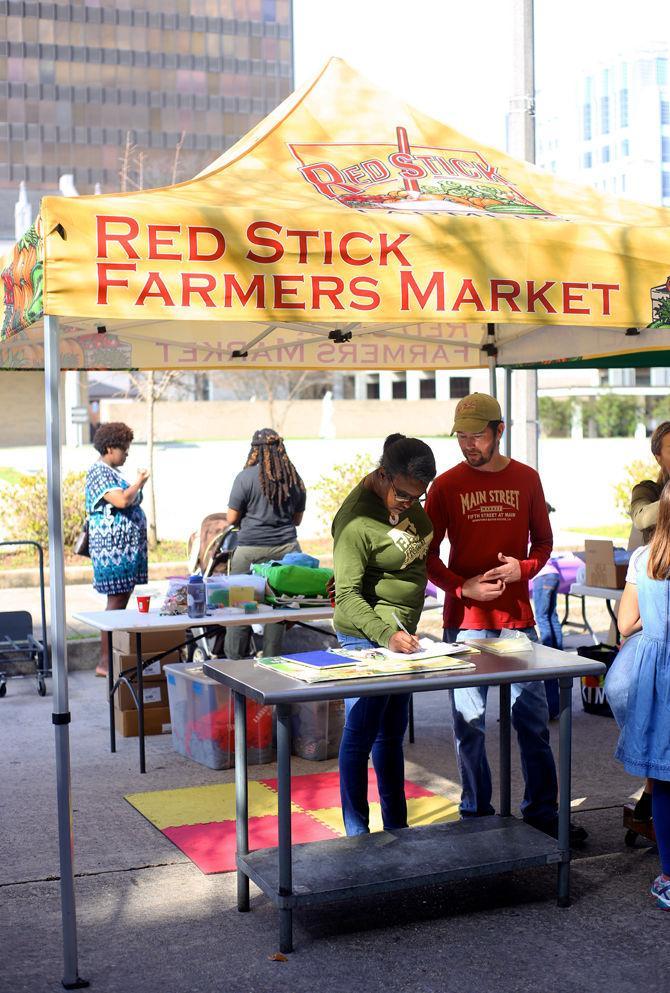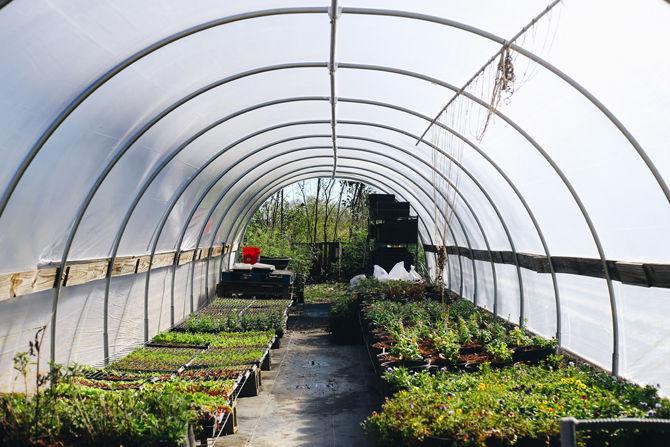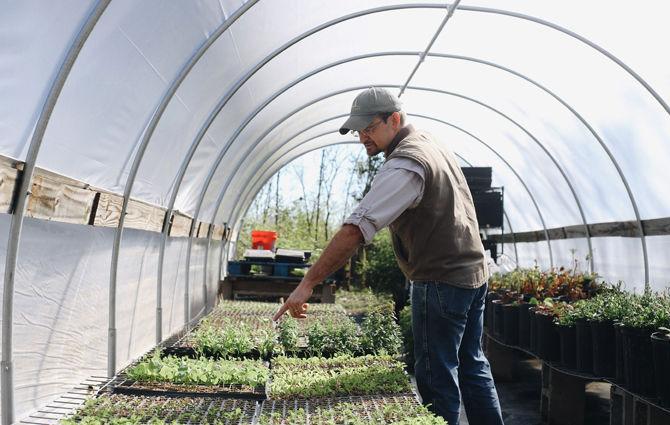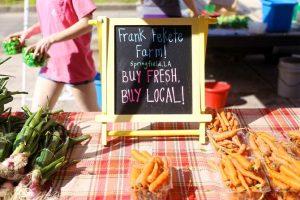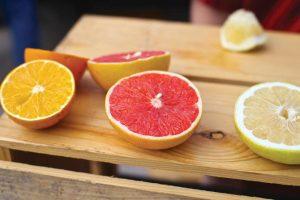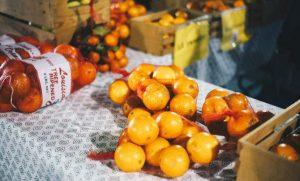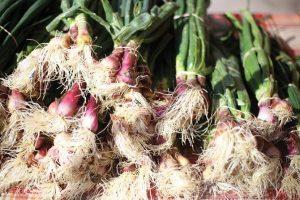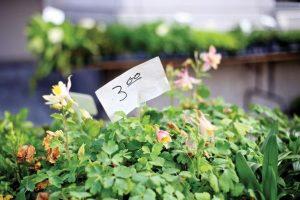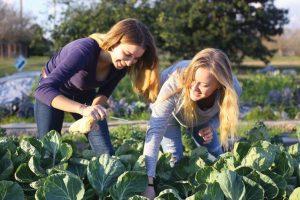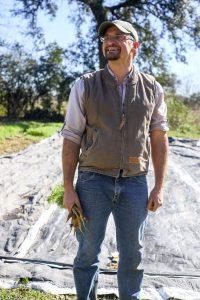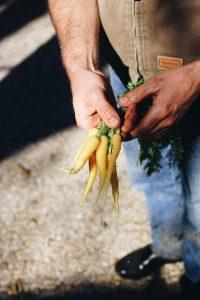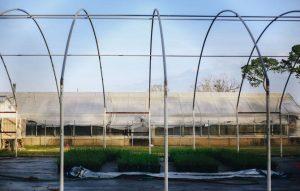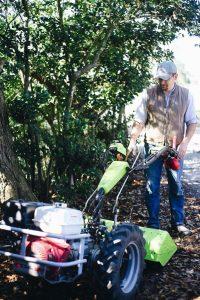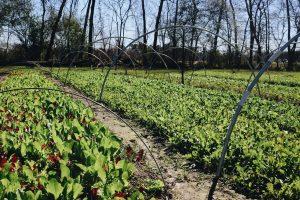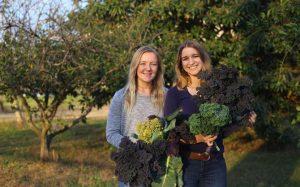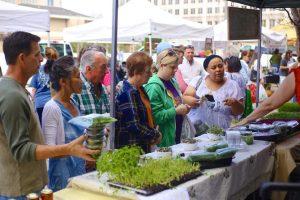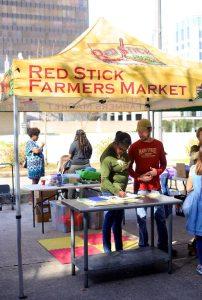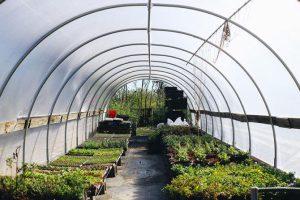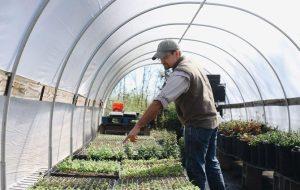The average student’s daily schedule may not include organic gardening, but taking time to grow herbs on a windowsill or cultivate a plot in a community garden is well worth students’ time.
The benefits students can reap from growing, buying and eating organic produce include saving money, living healthier and connecting with their communities.
Horticulture junior Sarah Morrison defines sustainable agriculture as farming for the community you’re in without depleting resources for future generations.
Morrison grew her own vegetables as part of an organic gardening class at the University and harvested enough produce for both herself and her roommates.
“Its personally very fulfilling to grow your own food,” Morrison says. “You put something in the ground and work hard to get your own food out of it.”
Morrison says sustainable agriculture could refer to a small personal garden, or a larger operation such as Fullness Organic Farm, a local homestead on Nicholson Drive.
The farm’s owners are Grant and Allison Guidroz, who cultivate, harvest and sell produce on their own.
Grant, a University alumnus who graduated in agriculture economics, says growing produce is not as difficult as most people think.
“I definitely understand being short on time and money, but a lot of limitations are in your mindset,” Grant says. “It really is not that time-consuming or expensive. Very few people have zero free time.”
He also pointed out the next best thing to growing your own food would be heading to a local farmer’s market, such as the Red Stick Farmer’s Market in downtown Baton Rouge, where Fullness Organic Farm sells its produce every Saturday.
“You’ll find it’s cheaper to eat healthier. Really I can’t afford to not eat healthy,” Grant says about the health benefits of fresh organic produce.
Grant says many vegetable varieties sold in grocery stores are bred for shelf life rather than nutritional value, whereas varieties available for home gardens are bred for taste, which correlates to a higher nutritional value.
Knowing the food students are buying or growing is ethically grown and free from harmful chemicals is another appeal of homegrown and organic produce.
Grant sells fresh food to local restaurants and the startup venture Indie Plate, which delivers locally grown ingredients and produce to homes in the Baton Rouge area, as well as several surrounding cities.
Opportunities for students to grow or buy fresh food around Baton Rouge, such as Indie Plate, include local farmers markets, community gardens, or easy home growing.
Homegrown: Sustainable farming, personal gardens allow students to eat locally
March 31, 2017





